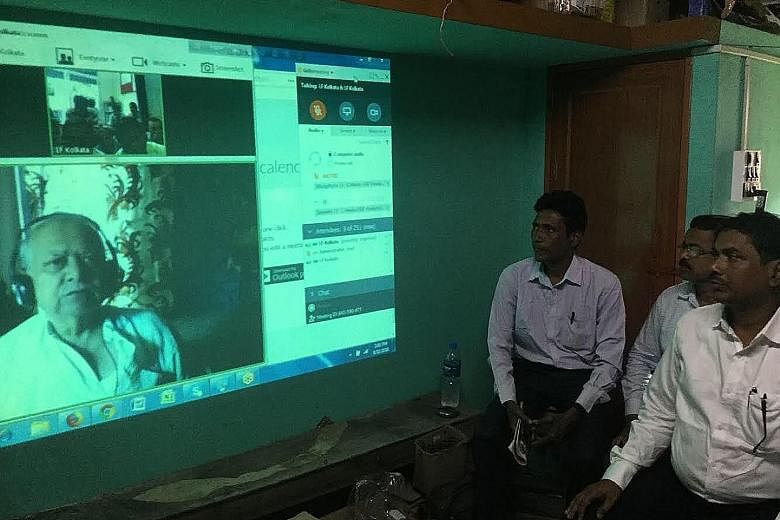With the nearest doctor 18km away, Mr Ashraf Ali Sheikh has been an important primary medical caregiver in his remote village in India's West Bengal for almost two decades.
Yet, under Indian legislation, he was seen as a "quack" because he does not have a recognised medical degree that authorises him to practise modern medicine - and even risked prosecution.
Last week, however, he finally shed this label after the Indian government legislated the National Medical Commission Act giving individuals like Mr Sheikh the licence to practise medicine as community health providers (CHPs).
They will be allowed to prescribe medicine independently for primary and preventive healthcare.
CHPs will also be allowed to intervene in advanced cases under the supervision of registered medical practitioners. However, the number of such licences issued will not exceed a third of that for registered medical practitioners in India.
The government also disbanded the Medical Council of India in a wider attempt to overhaul medical education and care in the country.
The council held that no person other than a doctor recognised by and registered with it (or any of the state medical councils) is allowed to practise modern medicine.
This volte-face was prompted by some inconvenient facts.
India has one registered doctor for every 1,456 individuals, compared with the World Health Organisation's recommended ratio of one for every 1,000 individuals. Nearly four out of five doctors are based in urban areas.
India's network of around 26,000 public healthcare centres are under-resourced - around 60 per cent function with just one doctor instead of the recommended three.
Without doctors, village residents depend on quacks for affordable and accessible healthcare.
It is estimated that 1.5 million untrained providers offer more than 70 per cent of primary care in rural India. It may have been illegal but the arrangement flourished.
Dr Harsh Vardhan, the Union Minister of Health and Family Welfare, justified the recent move as a step that would help the government attain universal health coverage.
"Doctors are a scarce resource in our country and need to be optimally utilised," he said. "They are indispensable for secondary and tertiary care; the only area where other health professionals can supplement them is preventive and primary healthcare."
Dr Partha Sarathi Mukherjee, director of Liver Foundation, West Bengal, a not-for-profit group based in Kolkata, said the move to engage these health workers is a belated recognition of the poor state of healthcare in remote India.
"The rural population has been suffering for many, many years because of the absence of not only quality healthcare but also primary and preventive healthcare," Dr Mukherjee told The Straits Times. "The government now must properly train and monitor these workers, who are currently self-trained and self-regulated."
Recognising the vital role such workers play, the Liver Foundation, West Bengal has been working since 2007 to formalise their role and fold them into the healthcare delivery system by training them to respond to primary health concerns. It has trained around 3,800, including Mr Sheikh, in the states of West Bengal and Jharkhand.
"I am happy the Indian government has finally recognised our work and wants us to continue doing the public service we have carried out so far," Mr Sheikh said.
The positive impact that health workers like him have had has also been validated by a study published in Science journal in 2016.
It found that those trained by Liver Foundation, West Bengal had increased the rate of correct case management by 7.9 percentage points and the likelihood of providing "average-quality or higher" treatment by 6.2 points.
But Delhi's move has faced opposition, with doctors at hospitals stopping work in protest. Dr R. N. Tandon, honorary secretary-general of the Indian Medical Association until last November, said it would create "legalised quacks" and harm public health.
"The government should instead be improving rural healthcare infrastructure so that doctors are encouraged to go and practise there," he told ST. "One cannot divide India into two communities, one to be treated by untrained people and the other by qualified doctors."
Dr Vardhan dismissed concerns that this move would encourage quacks by arguing that the punishment for quackery has been enhanced, with offenders facing imprisonment of up to one year and a fine of 500,000 rupees (S$9,700).
"The so-called quacks in the country do not possess any qualifications and would not be able to meet the conditions that will be set by National Medical Commission for becoming a CHP," he said.

